♀️ The Trailblazing Women of Wall Street
Women have long shaped Wall Street—even when history tried to write them out.


Whereas most New Yorkers may get their groceries from the local bodega or a national chain like Whole Foods, certain communities on Long Island revolve around a type of market unfamiliar to most. A handful of drive-through supermarkets, many modeled off of barns, serve local suburbanites across Long Island, some dating back to the 1960s. But why have these drive-through supermarkets like the Barn been able to survive for over six decades? Why do many look like barns and silos? And what is the future of these quirky architectural gems?
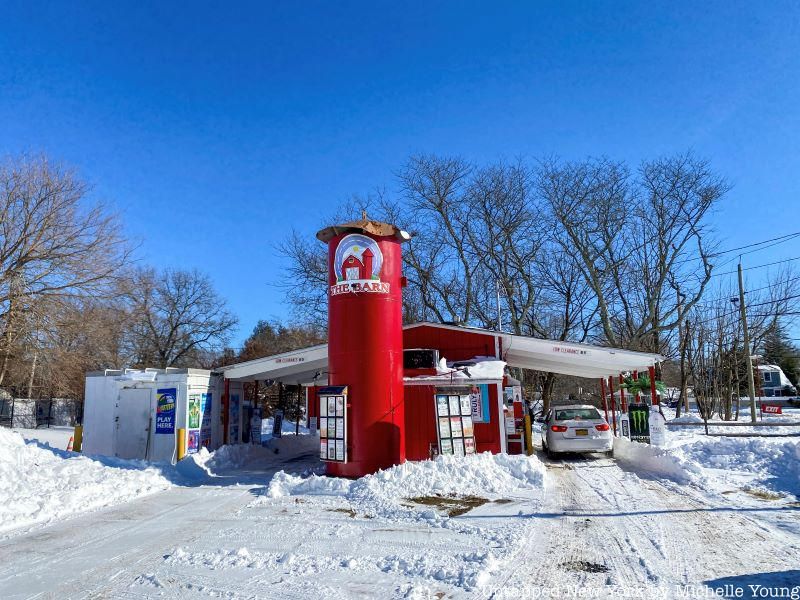
There are currently two locations of The Barn open in Suffolk County, a few newer locations of Farm Stores (which began in 1957 and is now America’s largest and oldest drive-thru convenience store), Cupeez in East Setauket, and a handful of other independently owned drive-throughs. Some have closed in recent years, while others are undergoing renovations or changes in ownership.
The Dairy Barn was the first to pioneer the concept on Long Island. In the 1930s, Edgar Cosman, a textile manufacturer in Switzerland, sent his 22-year-old son, Dieter, to work in the family’s parachute cord factory in New Bedford, Massachusetts. Edgar, though, became stranded in New York when World War II broke out and his cruise ship, the Normandy, was commandeered into military service. While staying in the U.S., Edgar decided to buy a dairy farm on Long Island, and within the next few years, Dieter developed the Oak Tree Farm Dairy in Northport into a successful wholesale milk business.
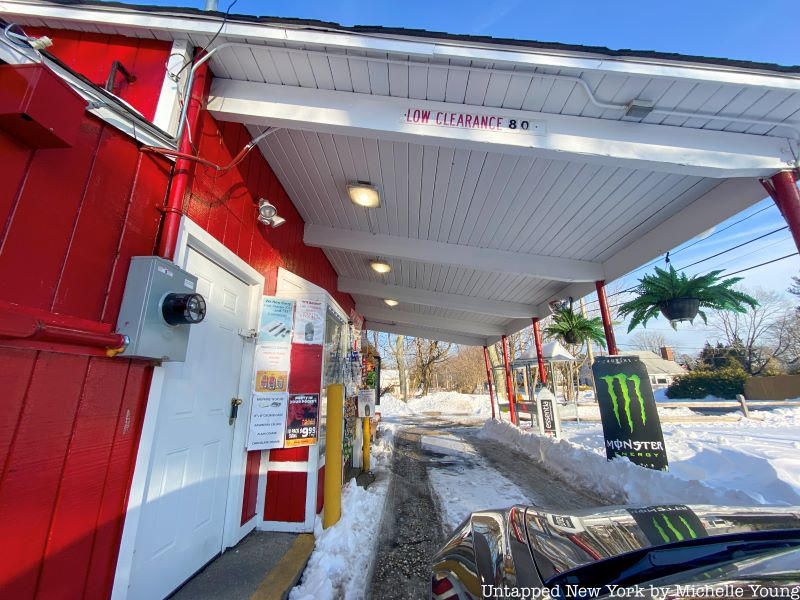
The first Dairy Barn store opened in 1961, offering drive-through service alongside a large selection of dairy products. The stores resembled barns in outward appearance, painted a bright red. The family opened about 60 locations to get milk and other dairy products to consumers as quickly as possible, since at the time milk wasn’t pasteurized and couldn’t last as long as it does today. The Dairy Barn franchise expanded throughout Long Island from western Nassau County to eastern Suffolk in residential neighborhoods. Products like chips, cookies, cakes, cigarettes, and beer were added after a few years.
In 2010, Mike and Aegina Angeliades, a father and daughter duo from Long Island, took over the Dairy Barns and renamed them The Barn as part of a rebranding. The Huntington and St. James locations remain open today. Aegina told Untapped New York that her father agreed to purchase the Dairy Barns and to make some changes, such as improving coffee quality, carrying more organic products, and making them overall modern. One of the locations in Lindenhurst was rated top coffee on Long Island for several years in a row. Just two months prior to the pandemic, a group of mutual friends suggested adding prepared foods to the drive-throughs. According to Aegina, they were going to gradually take over the store, so she and her father tried to get permits to do some updates. Then the lockdown hit.
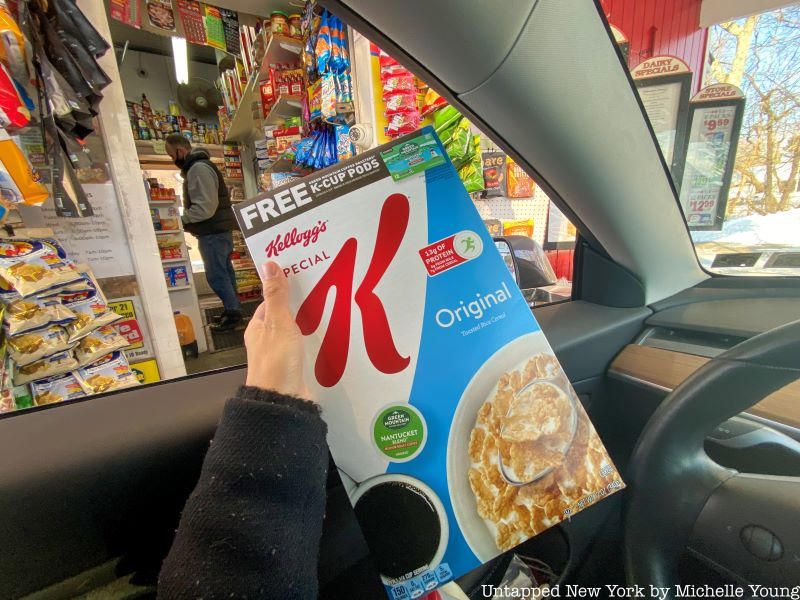
“During lockdown, the business was like nothing we’ve ever seen. There are two driveways, and a busy store might have one call on each side because there are two serving windows, [but] there were cars on both sides of the driveway down the street. Whereas we would go to the bank once a week to get change to have quarters, dimes, and nickels, we had to go daily.”
The locations had previously never seen so many customers, but Aegina noted how no employees had initially tested positive for COVID-19 and all came to work during the height of the lockdown. She estimates that business went up about 20% compared to pre-pandemic times and stayed around that over the past two years. This number jumped to about 40% during the lockdown.
“All of a sudden you have somewhere where you don’t have to get out of the car. We had for years and years and years a lot of groceries that people either didn’t really realize or weren’t going to buy… so people were coming, just handing us lists of groceries and we had all that stuff and we always did. Whereas we would normally sell six tubs of cream cheese, now we were selling three cases of cream cheese. So things were flying off the shelf every day for about two months. People either didn’t realize what we were, the younger generation forgot who we were, or they always came down but now weren’t coming just for milk.”
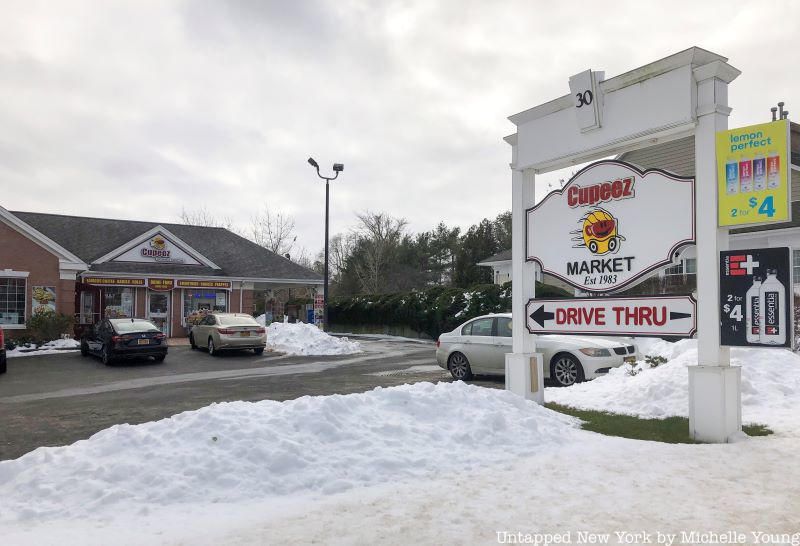
Aegina mentioned how even though during the start of the pandemic she and staff considered themselves “the greatest thing since sliced bread,” there remained some doubts about giving up the locations. She mentioned that some needed major facelifts and rejuvenation. The company with whom Aegina and her father signed a contract wanted to use some locations to open more Greek From Greece spots. She acknowledged that GFG had lots of great ideas and mentioned potentially partnering with them in the future. The other non-Huntington or St. James locations are all in a state of transition, whether getting permits or half-operating.
For the remaining locations of The Barn, Aegina mentioned how modern technology may become incorporated into the business. This includes an app on which customers can preorder goods for pickup. She mentioned an express coffee business called Buzz’d, also on Long Island, with an express lane for mobile orders and one lane for drive-in orders.
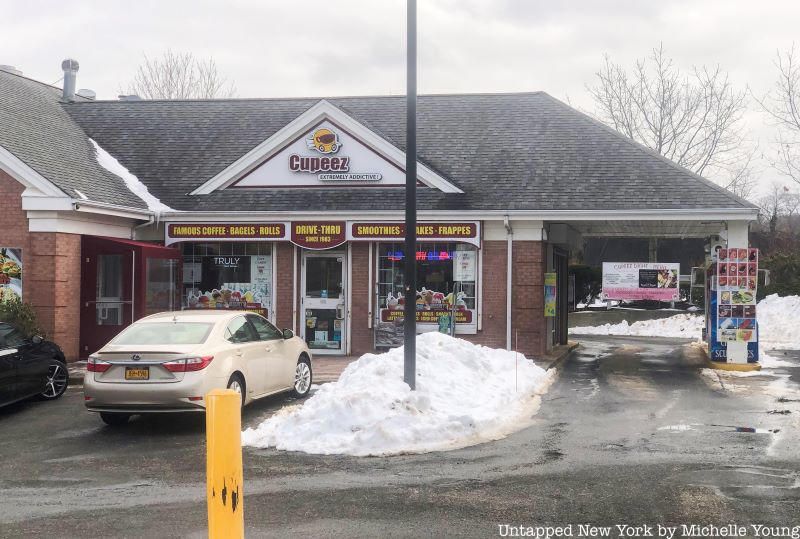
Another spot advancing the concept is Farm Stores, which carries customers’ favorite grocery and household brands right to their cars. In addition to the typical milk and eggs, as well as fresh produce, Farm Stores offers ready-to-eat hot and cold snacks and freshly brewed coffee, They have already instituted a mobile app that allows customers to place an order in advance.
Though these once-common stores are now quite rare on Long Island, they continue offering customers nearly everything they could want, some preserving decades-old architecture.
Next, check out 10 beautiful places to discover in Suffolk County, Long Island!
Subscribe to our newsletter